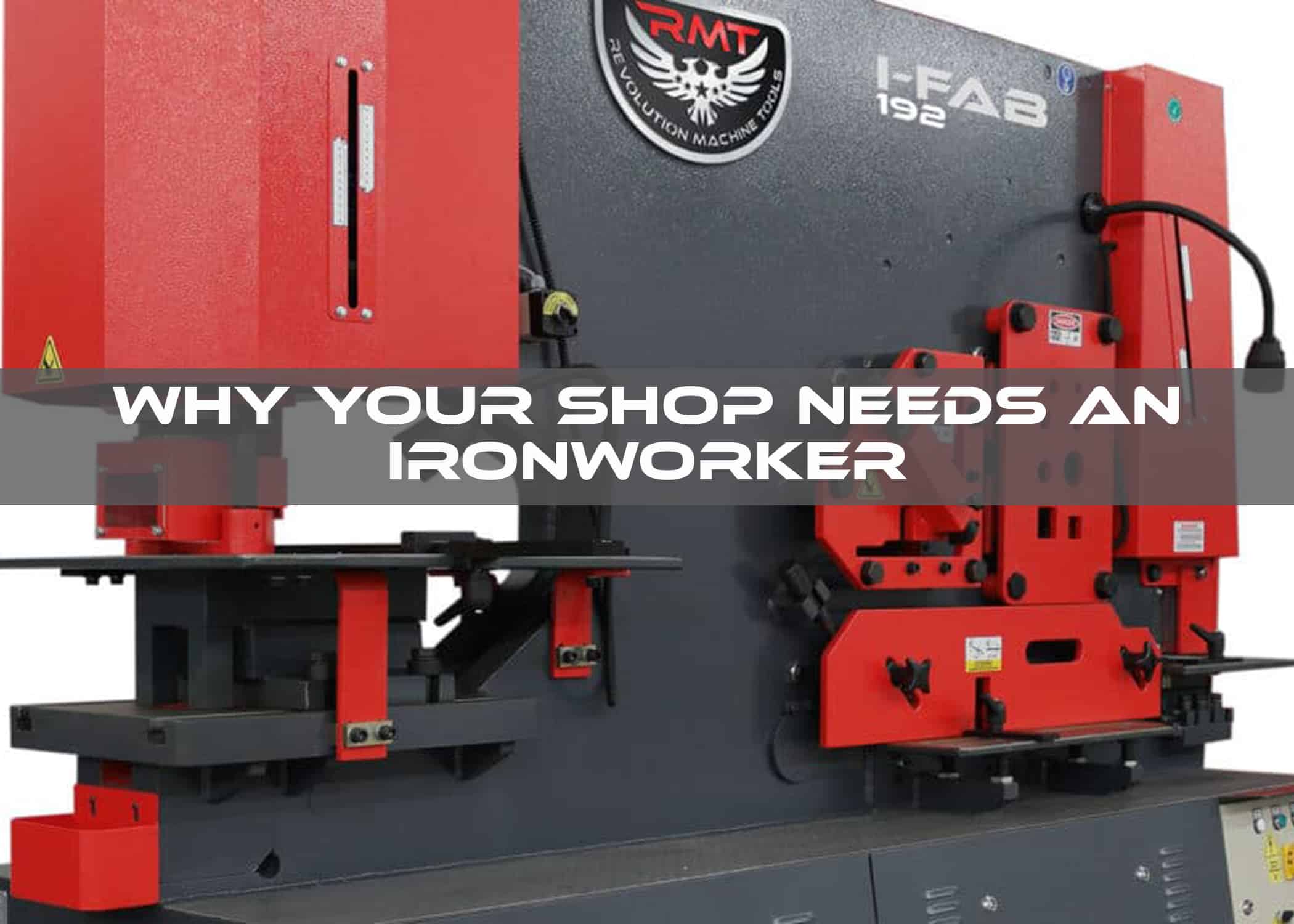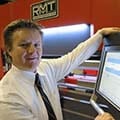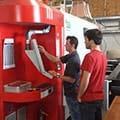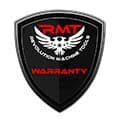One-man Band
You laughed along with your classmates when the kid came out at the high school talent show literally wearing a collection of musical instruments. From the harmonica suspended on a framework in front of his face to his mini-electric keyboard to the cymbals fastened between his knees he looked ridiculous. The giggles soon turned into some light applause as the self-proclaimed One-man Band began to work his hands, legs, and mouth in unison to produce a not bad rendition of a pop tune of the day. While amazed at this impressive feat, you commented to a friend that to get flawless sound you’d still need to have a full band.
You were reminded of that long-ago talent show when you picked up a circular advertising the “ideal accessory” for any metal craftsman: a three-in-one press brake, shear, and slip roll. Chuckling to yourself, you shook your head in amazement at the small device. No serious fabricator would even consider such a contraption, you thought. To be successful, even an amateur metalworker would need a separate roll, brake, shear, and other equipment. Trying to combine them into a single unit would be a recipe for disaster.
When you arrived at your fab shop the next day, however, you stopped dead in your tracks. Sitting there in front of you on the shop floor was just such a “combo machine,” one that you had repeatedly prized since you bought it several years before. In fact, this multi-purpose tool was the very first piece of equipment you purchased when you first opened your shop. As you put your hand on your old ironworker, you admitted to yourself that sometimes a machine that could do more than one task could, in fact, be very valuable to a metalworker.
The Perfect Fab Shop Investment
The ironworker was born when a metalworking machinery producer in the first half of the twentieth century recognized the potential of using the power supplied by one of their flywheel-driven mechanical punches to perform another function—such as shearing—at a different location on the machine. With the advent of the hydraulic ironworker in the second half of that century, it wasn’t long before this versatile piece of equipment was acknowledged as one of the essential components of a metal fabrication shop.
With different stations that utilize the powerful motion of one or two hydraulic cylinders, ironworkers can punch holes and notch angles in plate metal, as well as shear off various profiles, such as angle iron. Additional tooling can usually be added to most ironworkers that provides other functions, such as pipe coping and plate bending.
Hydraulic ironworkers are compact machines, especially when compared to other significant metalworking equipment like hydraulic shears or press brakes. Their smaller size provides several advantages to fabrication shop owners:
- A lower price tag than most other fabrication machines.
- A small footprint, allowing them to be positioned strategically on a shop floor.
- Ease of transport to alternate locations within a shop as required for specific jobs.
- Good visibility for operators to work from different positions with the help of a remote foot switch or pendant control.
Although they are multi-function machines, hydraulic ironworkers have a very basic design, making them easy to run. New operators can be trained very quickly in the essential procedures for each workstation. Setups between different tooling or even attachments can also be performed rapidly.
Between their low price point, their versatility, and their ease of operation, hydraulic ironworkers are the perfect investment for any fab shop, whether newly opened or well-established.
Your Ironworker Still Doesn’t Do Enough? Customize It!
Its ability to perform various tasks quickly and inexpensively—such as cutting down bar stock for further processing in the fraction of the time it would take to saw through it—makes the ironworker extremely useful to a shop. As much as it can do “out of the box,” however, there are ways to make it even more advantageous to your production by adding available options from the manufacturer or customizing it in a variety of ways to better accomplish the unique jobs that come your way. Some possibilities include:
- Buy a backgauge for your shearing. When cutting multiple parts to the same length, having a backgauge will ensure accuracy by helping you correctly position your workpieces.
- Upgrade to a backgauge with a trigger switch that engages the shear when the workpiece encounters it, adding a degree of automation to your work.
- Get a stage punching table. If you don’t do enough repetitive punching work on single workpieces to justify the purchase of a gang punch for your shop, adding a table with moveable stops to your punching station can be a cost-effective alternative.
- Add a press brake attachment. Many ironworkers will have a short press brake attachment included that can be used at the punching station, but if yours doesn’t, order one. The ability to bend small pieces of plate without having to interrupt work on your press brake can be invaluable.
- Order a larger press brake attachment. Many ironworkers will offer optional longer bending setups than the standard included attachment.
- Fabricate a custom material stop to be attached with the bottom bending die to allow for fast and accurate production bending.
- Purchase or make special forming dies for specific bending jobs.
- Obtain tooling to do work like embossing or stamping.
- Add a plate notcher. While many ironworkers include a notching mechanism, some leave that station empty so fabricators can select what will go there, if anything. If your machine doesn’t have a notcher, consider adding a standard or specialized one.
- Purchase a pipe coper. If you need to fit pipes together to create a structure like a vehicle roll cage or a railing, getting a pipe coping attachment for your ironworker is a solution that is cheaper than a tube cutting laser and faster than milling notches by hand.
With a small expenditure of cash, your ironworker can be equipped for a variety of extra functions to help your shop be even more efficient in its tasks.
Speed Up Your Production with an Ironworker
Even if you own every other piece of fab equipment imaginable, there will always be a need for an ironworker in a shop. From small one-off projects that could otherwise tie up other valuable equipment to short production runs of simple parts, you will continually find a use for an ironworker.
By diverting small jobs to your ironworker, you will be able to speed up the workflow of your shop and expand your team’s productivity. If you don’t already own one—or if you need an upgrade—contact a trusted metalworking equipment dealer today and see what machines and accessories are available to help you increase your bottom line.
